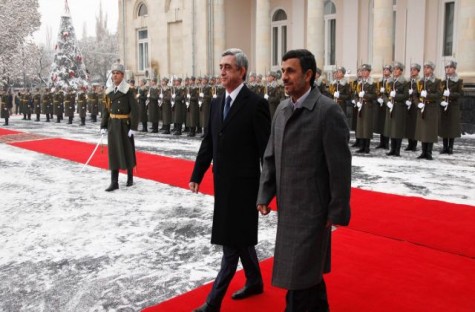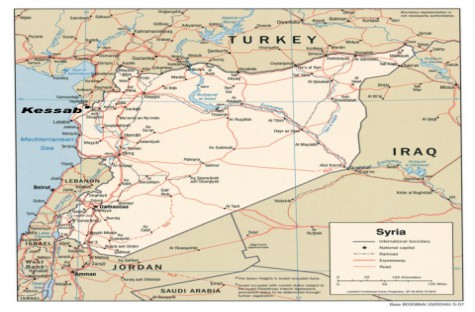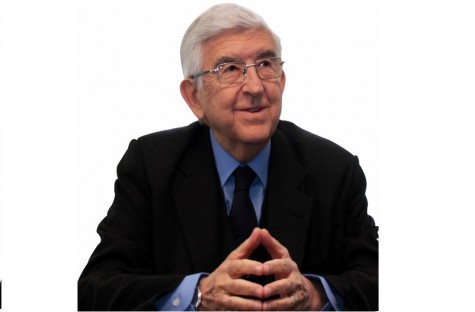Even after gaining its independence from the disintegrated Soviet Union in 1991, Armenia has continued to be dependent on Russia. Due to disputes of its own creation, Armenia has not been able to establish diplomatic relations with two of its neighbors Turkey and Azerbaijan and the borders have remained closed. Its connection to the outside world has been confined to Iran and Georgia. To sustain its existence as a state has only been possible with Russia’s support. However, there has been a cost to maintaining close relations with Russia. That this cost is becoming too heavy a burden, Armenia not being able to act independently and unable to take the steps on issues even concerning Armenia’s national interests have started to be elaborated with increasing criticisms and complaints within the Armenian press, particularly with regard to the Russian military bases and the deployment of military personnel. Some other issues coming to the forefront among criticisms against Russia are that they have not received support from Russia for the recognition as an independent state of Nagorno Karabakh, the Azeri territory which Armenia has occupied, or for its recognition by the international community, the price increase introduced to natural gas, despite being below world market prices, Russia’s arms sales to Azerbaijan, Russia establishing close relations with Turkey, the likely costs these relations could bring to Armenia, the agreement signed between Russia and Armenia on making migration easier causing a brain drain and emptying of Armenia, that the Russians refrain from resolving this problem and that the Armenian minority in Russia is subjected to discrimination and humiliation. It is to be seen that Armenia has started seeking new relations which would reduce its dependence on Russia, although it cannot be said at this point that it is a search for an alternative to Armenia’s relations with Russia. The US and EU which could provide this opportunity essentially seem ready for such an opening. NATO also takes part in one dimension of this opening. Following the working meetings held with the European Union, the Armenian Foreign Minister has said on November 5th that visible progress on signing an agreement between Armenia and the EU has taken place. Earlier it was reported in the Armenian press that a preliminary agreement was reached on the signing of two technical agreements during a meeting in Brussels chaired by the rotating Presidency of the Administration of Southern Cyprus. In the press, optimism on relations with the EU has been carried so far to say that if they so chose, they could become a member even before Turkey. According to information leaked to the press, it has been reported that if Armenia chooses the West as an alternative to Russia, the European Union would immediately provide 1.5 billion Euros, sign an agreement for visa facilities and establish a free trade zone. NATO’s interest in Armenia has also been high profiled. NATO Secretary General has paid an official visit on September 6, has attended a joint press conference with the President and has stated that he saw no contradiction with Armenia’s military alliance with Russia and having closer relations with NATO. The Armenian President has said that Armenia will continue combining its membership with the Collective Treaty Security Organization (CSTO) which it has been a party to since 2002 together with Belarus, Kazakhstan, Tajikistan, Uzbekistan and Russia and growing cooperation with the US led alliance. On November 5, a NATO week has been organized in Yerevan. During this event, Special Representative of NATO General Secretary has said that NATO relations with Armenia is essentially on good terms in the recent years, that Armenia has provided soldiers to peacekeeping troops in Kosovo and Afghanistan, that NATO is trying to further strengthen its presence in the southern Caucasus and that they want to develop cooperation with Armenia and to provide assistance to the comprehensive reforms taking place within the Armenian army. In his turn, Armenian Deputy Foreign Minister has stated that Armenia attaches great importance to continuing cooperation with NATO and continuing dialogue with the alliance. Relations with the US have also been visible and comprehensive. Next to the US’s Embassy in Baghdad, its second largest presence being in Yerevan is particularly interesting. In view of the US’s partnership relations with Turkey and Azerbaijan, its disagreements with Iran and the additional problems, the neighbor of these three countries, Armenia’s dependence on Russia could create is without doubt among the main reasons for US’s interest in Armenia. The visit of US Commander of Naval Forces and opportunities for cooperation were examined in one of our earlier articles. The Armenian President who had visited the US in April 2010 to attend the Nuclear Security Summit had also met with President Obama on this occasion. US Foreign Minister has visited Armenia in June 2012 and during the talks held, is reported to have raised and praised the policy of normalizing relations with Turkey. President Obama, in a letter sent to his Armenian counterpart in September 2012, has promised support for political and economic reforms and has expressed his hope for close cooperation to continue developing further in the upcoming years. In his recent statement, the US Ambassador in Yerevan has emphasized that Armenia could share Western values and gain economic and financial benefits. The Presidential election to be held in February 2013 has gained sensitivity for providing a choice of parting of ways for Armenia. It is not easy for Armenia to severe its ties with Russia, in fact this does not seem possible at this point. On the other hand, the developments have provided Armenia with cards to bargain and have enabled it to provoke customers with a view to marketing its geo-strategic position. Already in the Armenian press, it is indicated that financial, economic and political support is requested from Russia by emphasizing that this must take place before the presidential elections and within the framework of economic aid, special reference is being made to the price of natural gas. On the other side, Russia expects Armenia to become a member of the “Eurasian Union” which was signed in 2002 by Russia, Belarus and Kazakhstan to which President Putin is reported to attribute personal significance, as soon as possible. Armenia’s expectations from the West and in this framework, from Turkey (the recognition of the alleged genocide, apology and compensation) are no doubt more comprehensive. It would be prudent to say that Turkey needs to be careful, sensitive and sober minded in the face of upcoming developments.
© 2009-2025 Center for Eurasian Studies (AVİM) All Rights Reserved
 BAKU TO THE FUTURE: AZERBAIJAN, NOT ARMENIA, IS ISRAEL'S TRUE ALLY
BAKU TO THE FUTURE: AZERBAIJAN, NOT ARMENIA, IS ISRAEL'S TRUE ALLY
 ARMENIAN CLAIMS WITH REGARD TO THE EVENTS IN KESSAB
ARMENIAN CLAIMS WITH REGARD TO THE EVENTS IN KESSAB
 CYBERBULLYING AGAINST AVIM FOR ALLEGED HATE SPEECH
CYBERBULLYING AGAINST AVIM FOR ALLEGED HATE SPEECH
 THE IMPORTANCE OF 2015 FOR TURKEY AND THE MOVIE “WATER DIVINER” - Hande APAKAN
THE IMPORTANCE OF 2015 FOR TURKEY AND THE MOVIE “WATER DIVINER” - Hande APAKAN
 WHY TURKEY’S VIEW OF THE ARMENIAN ISSUE SHOULD NOT BE SUPPRESSED
WHY TURKEY’S VIEW OF THE ARMENIAN ISSUE SHOULD NOT BE SUPPRESSED




























